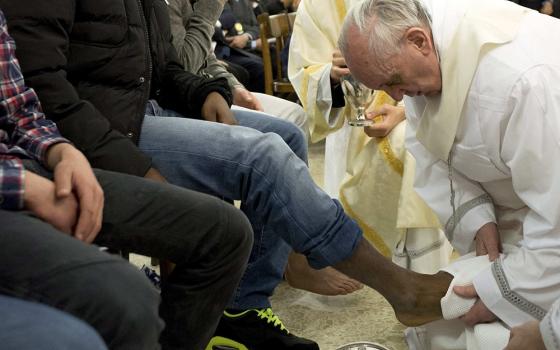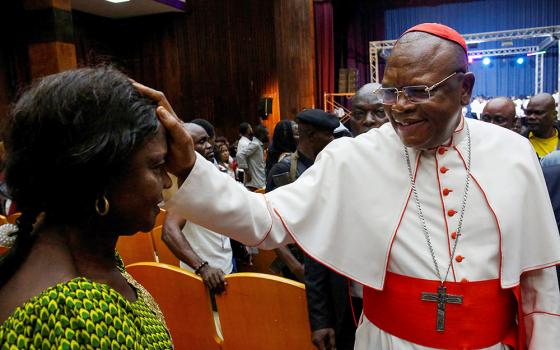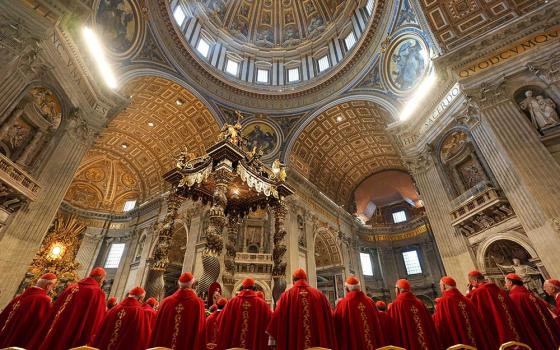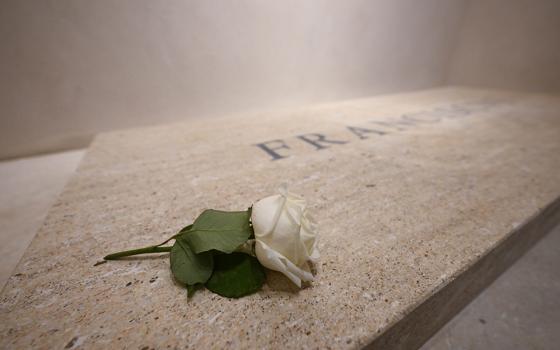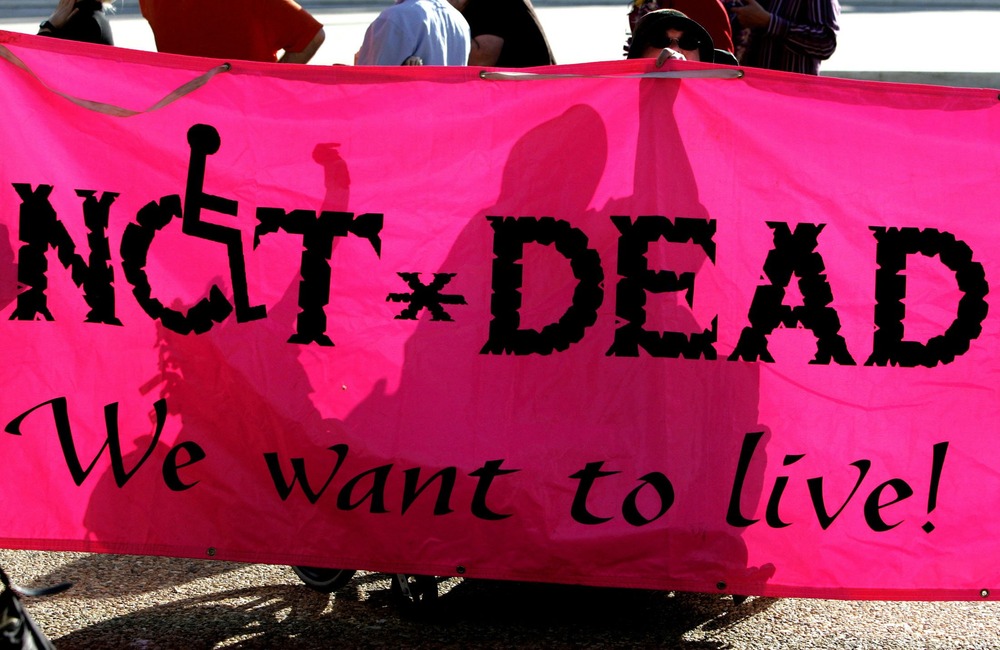
A file photo shows disabled protesters against physician-assisted suicide silhouetted as they hold up a banner outside the U.S. Supreme Court. The New York Assembly passed a bill April 29, 2025, that would legalize physician-assisted suicide in the state, despite strong opposition from the state’s Catholic bishops. Catholics now are urged to contact their state senators to ask they vote no on their chamber's version of the measure. (OSV News/Reuters/Jason Reed)
The New York Assembly April 29 passed a bill to legalize physician-assisted suicide in the state, despite strong opposition from the state's Catholic bishops.
The bishops are now calling on all Catholics to contact their state senators and urge them to vote against the Senate version of the bill passed by the Assembly.
The paired legislation — A136 and S138 — would amend the state's public health law to allow a terminally ill adult with a prognosis of six months or less to request from a physician a medication that would hasten his or her death, if the patient decided to take it.
Via the Action Center section of its website, the New York State Catholic Conference, which represents the state's bishops on public policy matters, is providing a sample message that may be customized for specific lawmakers and a look-up tool to find their contact information.
The Catholic bishops are not alone in their opposition to the assisted suicide measure.
The state Catholic conference and the Diocese of Rochester's Department of Pastoral Services teamed with Feminists Choosing Life of New York and the Finger Lakes Guild of the Catholic Medical Association to plan a May 1 webinar on physician-assisted suicide being led by Amanda Achtman, an adjunct professor in the bioethics program at St. Bernard's School of Theology and Ministry in Rochester.
Achtman has served in key roles in Canadian Physicians for Life and as an adviser to a member of the Canadian Parliament working to prevent the expansion of euthanasia in that country.
Feminists Choosing Life of New York also was working with the New York Alliance Against Assisted Suicide to sponsor a May 6 bus trip to Albany to lobby against the legislation.
Passage of the bill would usher New York state into "a dangerous new era," the state's bishops wrote in an April 24 letter. The legislation states that health care providers and facilities may choose not to participate in the provision of life-ending medication to a patient, yet passage of this bill would leave vulnerable people — including those with disabilities, the elderly, and residents of impoverished and medically underserved communities — subject to pressure and coercion to end their lives "so as not to be a burden to society or an excessive cost to insurance companies," the bishops wrote.
Passage of the legislation also would send the message — perhaps unintentionally — that suicide is an acceptable solution to a problem, and put New Yorkers on the precipice of a dangerous slippery slope, according to the bishops, who pointed to similar legislation passed in Canada in 2016.
Advertisement
Within a few years of its passage, the Canadian legislation, initially focused only on those with terminal illnesses, was expanded to also allow those with chronic conditions to end their lives. In 2027, the law is set to expand again, this time including those "whose only underlying condition is mental illness, such as depression, anxiety or anorexia," the bishops noted.
The proposed legislation is "a classic Pandora's Box," state Catholic conference spokesman Robert Bellafiore said in an April 29 statement responding to the bill's passage in the state Assembly.
"Once enacted, it cannot be controlled. And the experience in suicide-by-doctor jurisdictions shows this will go in directions New York's well-meaning lawmakers may not envision but the bill's lobbyists very much desire," Bellafiore wrote.
Although A136 passed in the state Assembly, lawmakers debated the bill for four hours on the Assembly floor before narrowly passing it, according to Dennis Poust, executive director of the state Catholic conference.
"The final vote was 81-67, which for the Assembly is a very close vote," Poust said.
A bill needs 76 votes to pass in the Assembly, and the speaker of the Assembly — currently Carl Heastie, a Democrat from the Bronx — generally requires 81 Democrats to support a bill before he will call a vote, Poust said.
"The bishops of New York state are grateful to the entire Republican minority in the Assembly, as well as about 20 Democrats who took a principled vote against state-sanctioned suicide," Poust said. "The closeness of the vote indicates that many legislators are looking closely at the inevitable unintended consequences, including the possibility of coercion and pressure for people to end their lives.
"In a particular way, Assembly Democrats of color who spoke out against the bill during the vote understood the threat in their communities, which historically are medically underserved."
The Catholic bishops called upon Senate Majority Leader Andrea Stewart-Cousins, a Democrat, to reject the assisted suicide legislation and on Democratic Gov. Kathy Hochul to veto the bill should it come to her desk, Poust said.
The bill's narrow passage in the Assembly and lengthy debate "clearly show that state-sanctioned suicide is a disaster-in-waiting for New York," he added.


